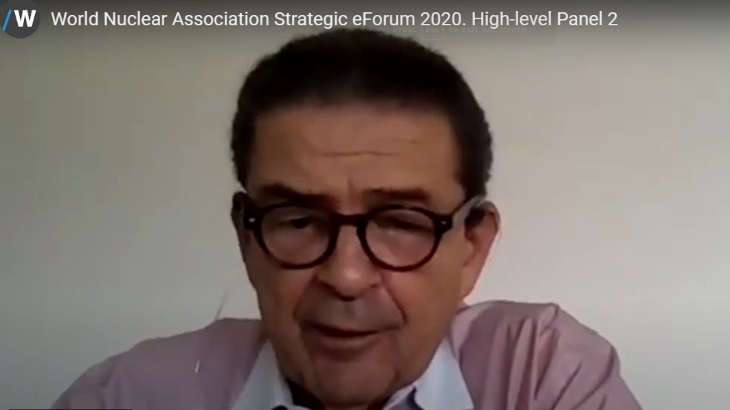In June, Brazil's Investment Partnership Programme council approved a plan to complete unit 3 of the Angra nuclear power plant. Created by the government to expand and strengthen the relationship between the state and the private sector, the PPI's main objective is to generate jobs and growth for the country through new investments in infrastructure projects and privatisation.
Speaking at the Strategic eForum on 10 September, Guimarães said that comparing the costs of different power generation technologies "has become one of the main arguments used by proponents of specific sources and by those seeking to find the best approach to plan the expansion of electricity systems". However this approach taken alone for public energy policy making is "far from simple and can lead to unwanted and unexpected results", he said.
"How much does it cost? It seems like a simple question. However when it comes to competing power generation technology, it's an extremely challenging question," he said. "Generation costs include many variables, including capital, fuel, generation, waste disposal, environmental impact, interconnection, reliability, and external and systemic costs. And no two technologies are alike. Environmental and social considerations are highly site-specific and so the results will vary widely, even within a given country according to geographic position."
Asked what the nuclear sector can do to instil confidence in investors and lower the risk premium of nuclear projects, he said that, before thinking about confidence in investors, the industry must consider that "investors are people first".
"If you get confidence from people, then investors will follow. When we talk about confidence, we're talking about public attitudes and the same components of public attitude are fundamental to instilling confidence."
He described these components as: government support; public opinion at the national level; removing the ghosts of nuclear accidents; community benefits; the supply chain; and technology selection.
There will be no investment in new nuclear without strong leadership from governments, he said, and while building public acceptance at the national level is difficult in a large country such as Brazil, starting from the local level is helpful, especially among those who live near a nuclear facility and therefore know first-hand the economic and environmental benefits of nuclear power. Fear of nuclear energy based on real events or dramatised accounts at Chernobyl in April 1986 and at Fukushima in March 2011 underlines the need to help the public understand the actual risks associated with nuclear energy through "risk governance", he said.
It is also important, he said, to develop a business model that demonstrates the advantages of the "commercialisation of energy" in a long-term project that also considers the options of state versus private sector, and national versus foreign involvement. Related to this is developing a supply chain before construction of a new nuclear power plant starts in order to avoid project delays and also to identify the opportunities for national skills and local businesses, he said.
Public acceptance and thus investor confidence is also based on the choice of technology, such as between a first-of-a-kind design or an nth-of-a-kind design, he said, as well as on an understanding of active and passive safety systems.
"Confidence is achieved by good nuclear governance and what we call the 3 Ss plus EP - safety, security, safeguards and emergency preparedness," he said. "I also include R for reliability. If you have this governance, then you have the conditions to instil confidence in investors to reduce the risk premium of nuclear projects."





_47120.jpg)

_23621.jpg)






